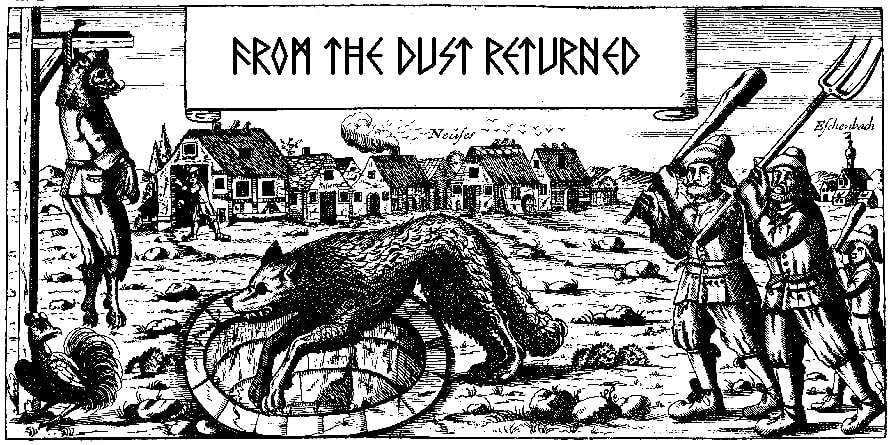 Don't be misled by the Spanish used in their album and song titles. This is not Brujeria Mk. II, but a group of German bastards who play a strain of crushing old school death metal with thick and fibrous strains of grindcore threaded into a concrete matrix of bone snapping brutality. Desechos Humanos is their third album, and while it's not amazing enough to wrench your neck from its socket, it would be difficult to conceived not at least having a partial good time to its raucous charms. Bands like Nasum, Haemorrhage, Neuropathia, Dead Infection and General Surgery all come to mind as far as its construction, but despite the huge guitar tone, there's not much Swedish happening here.
Don't be misled by the Spanish used in their album and song titles. This is not Brujeria Mk. II, but a group of German bastards who play a strain of crushing old school death metal with thick and fibrous strains of grindcore threaded into a concrete matrix of bone snapping brutality. Desechos Humanos is their third album, and while it's not amazing enough to wrench your neck from its socket, it would be difficult to conceived not at least having a partial good time to its raucous charms. Bands like Nasum, Haemorrhage, Neuropathia, Dead Infection and General Surgery all come to mind as far as its construction, but despite the huge guitar tone, there's not much Swedish happening here.
Goregast do know how to mix it up, and you'll encounter songs of varying tempos and lengths that do not necessarily preclude their content. For example, "Necrophagic Pathologist" and "Puerco de Dinero" are both under two minutes in length, but they vary the riffing from faster paced blasts to grimy grooves and back again. The downside is that there are some clear winners to be found here, and then a bunch of other tracks that amount to barely amusing filler. "Honor the Dead" and "The Boozer", for instance, rage off and rip your face off with bruising if simple patterns, but others like "Corta la Coleta" and "Capa" feel too predictable to punish. For the most moshing per minute, you might jet straight to the back of the bus here for "Unslave Yourself", which is all sledgehammer mentality that fades out into the same, strange ambiance that begins the record.
What the band might lack in pure riffing quality, they do somewhat compensate for with the enormous production of the record. Bold, bright, and beautiful enough to take even the most minimally constructed rhythms to the next level of notice. Rico Unglaube's vocals are loud and moody whether they're in Spanish or not, and the grunts are often affixed by snarls in the fine tradition running back to early Carcass. But I must say, that overall, Desechos Humanos does fall into the trap of the familiar, 'fun in the moment' effort, which just doesn't remain on the conscience long after it stops dealing you uppercuts with amputated zombie limbs. I've got very little negative to say about it, but in the long run it's not something I'd listen to over Nasum, Coldworker, Napalm Death, or various other groups in the field, and I do wish there were more memorable guitar riffs to latch on to.
Verdict: Indifference [6.75/10]
http://goregast.jimdo.com/























